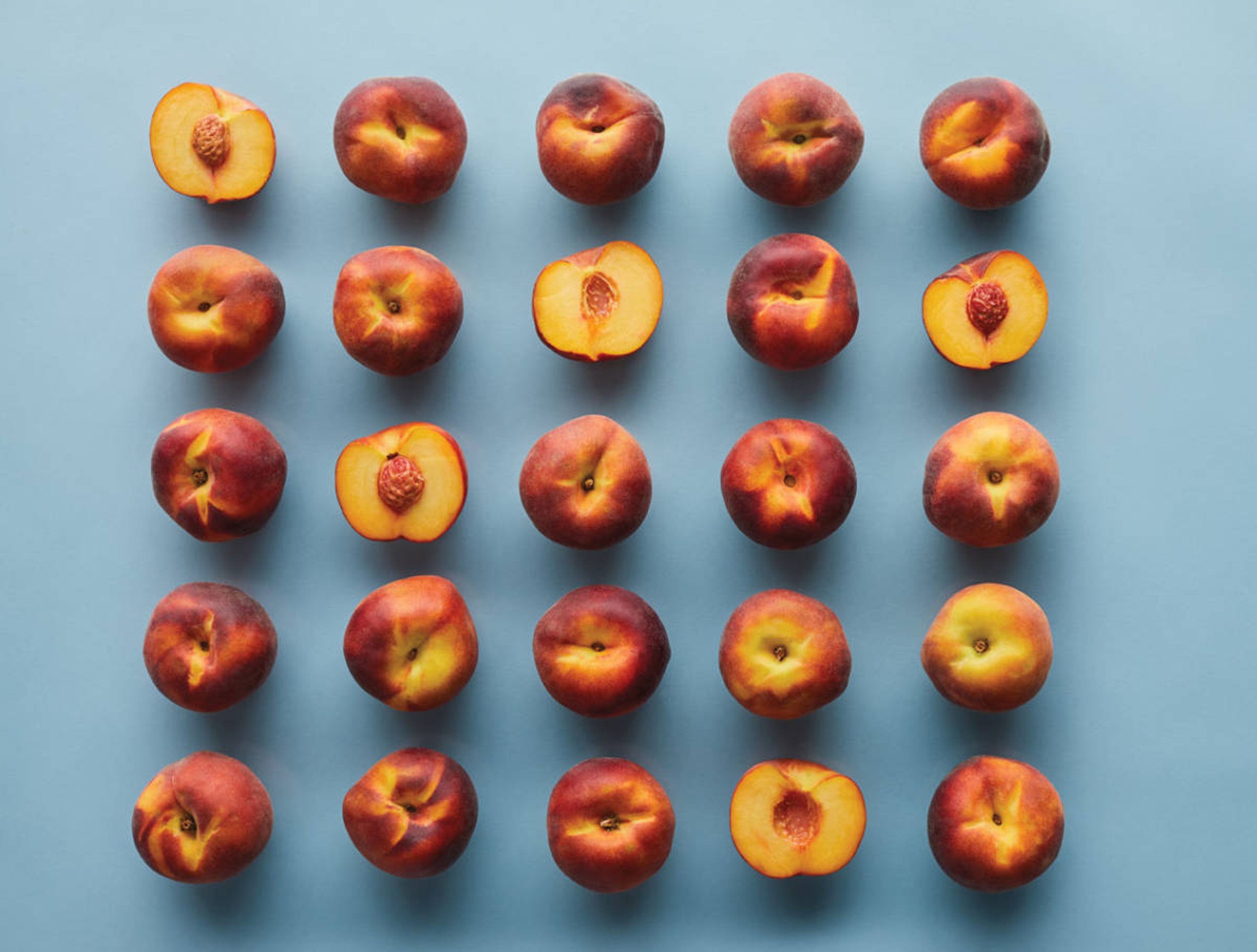Apple of Our Eye: Meet Nature's Most Versatile Fruit
The apple has earned a prominent place in our food culture and our modern world (think: computers).
Aug 24, 2021
The apple has staked its rightful claim as America's favorite fruit. With its iconic slightly heart-like shape, signature stem, and smooth, rosy skin, the apple has earned a place not just in our kitchens but in every aspect of our lives.
According to the U.S. Apple Association, the more than 5,000 apple producers operating in America today grow more than 240 million bushels (approximately 30 billion!) of apples a year, feeding an industry worth more than $15 billion. How 'bout them apples?!
Their variety is astounding
With more than 7,500 different types of apples in existence around the world, and more than 100 types grown in the U.S., there's a perfect apple out there for every set of taste buds. But what we look for in our apples as a nation is changing.
For more than five decades, Red Delicious apples were the most widely grown and consumed apple in the industry. But Reds reign no more.
In late 2018, the Red Delicious officially lost its crown. With Americans seeking greater variety in their apples — sour notes, floral flavors, different textures — the traditional Red Delicious began to slip. In its place rose the glorious Gala, an uber-crisp, creamy yellow apple with a mild sweet flavor and aroma containing hints of vanilla.
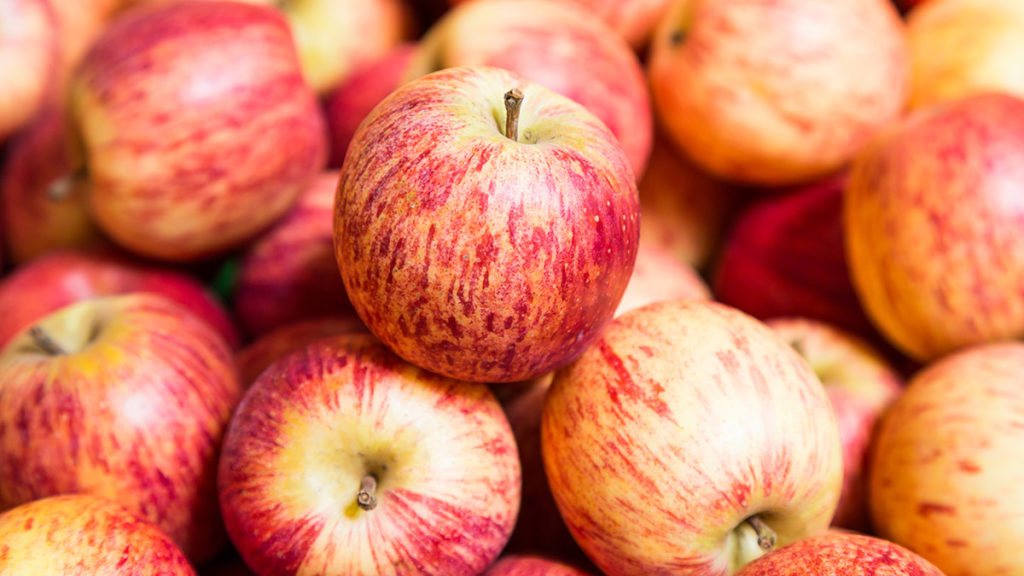
Following the Gala and second-place Red Delicious, the Honeycrisp, Granny Smith, and Fuji fill out America's top five favorite apple varieties, comprising more than two-thirds of all apples sold in the country annually.
Apples flavor our history
More than any other fruit, apples touch our lives in countless ways — starting as soon as we choke down our first bit of apple-flavored baby food or sip our first taste of apple juice.
As children, we're taught to eat an apple a day to keep the doctor away. Or to share the apples from our lunch boxes with our teachers as a symbol of affection and appreciation.
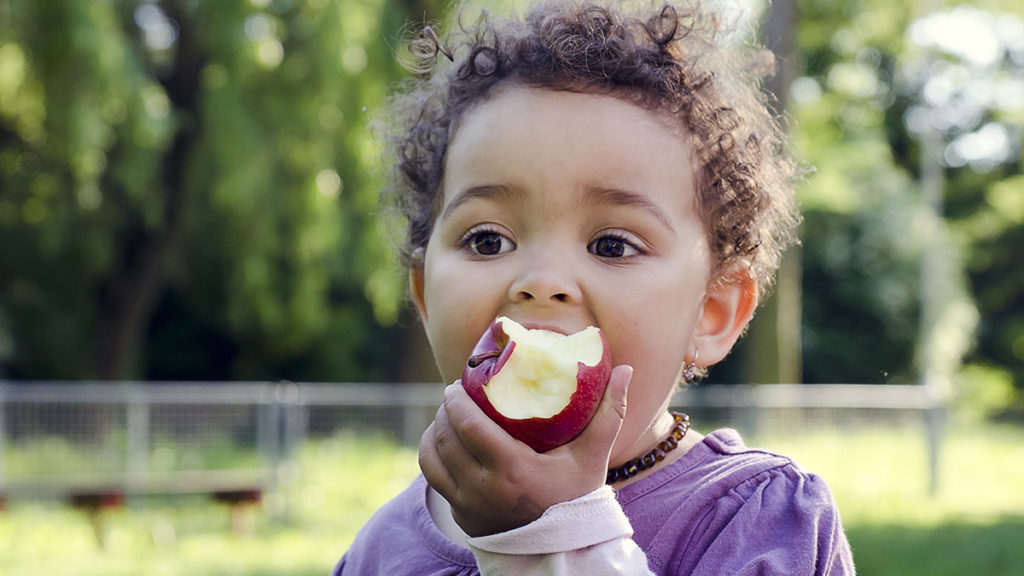
In church, we learn the story of Adam and Eve, the Garden of Eden, and forbidden fruit — often symbolized as being an apple you just can't wait to take a bite of.
In science labs, we discover the story of a relaxing Sir Isaac Newton observing an apple falling from a tree and coming up with the theory of gravity as a result.
In history class, we meet a wandering Johnny Appleseed, who helped spread apple orchards across our land in the late 1700s and early 1800s.
In music, we sit in awe listening to the songs of composer William Tell and his galloping violins and soaring orchestral chords — only to find later on that they were inspired, at least in part, by his own slightly disturbing experience shooting an apple off his own son's head.
In geography, we learn about New York City aka “The Big Apple," a nickname popularized in the 1920s and made to stick in the 1970s following an insanely popular tourist ad campaign.
Those tales and more offer just a bite of the full apple story that soars on even today.
Apples are an intrinsic part of modern pop culture
Even our leisure time is centered around the ever-present apple. Going back to 1904, apples were a central part of that year's World's Fair in St. Louis, with the Stark Brothers' Nurseries and Orchards from Louisiana, Missouri, launching an incredibly ambitious marketing campaign to promote their newly discovered apple — the Red Delicious.
Fifty some years later, when it was time for the world's biggest band to name their record label, what did John, Paul, George, and Ringo pick? The apple, of course. As The Beatles manager explained later on, the boys from Liverpool went with the beloved fruit as a namesake because they wanted a label named after something “fundamental and strong," like one of the first things children learn when they are growing up — apples.
Fast forward two decades and tech pioneers Steve Jobs and Steve Wozniak also found inspiration with that most beloved of fruits when it came time to name the new computer they'd just built.
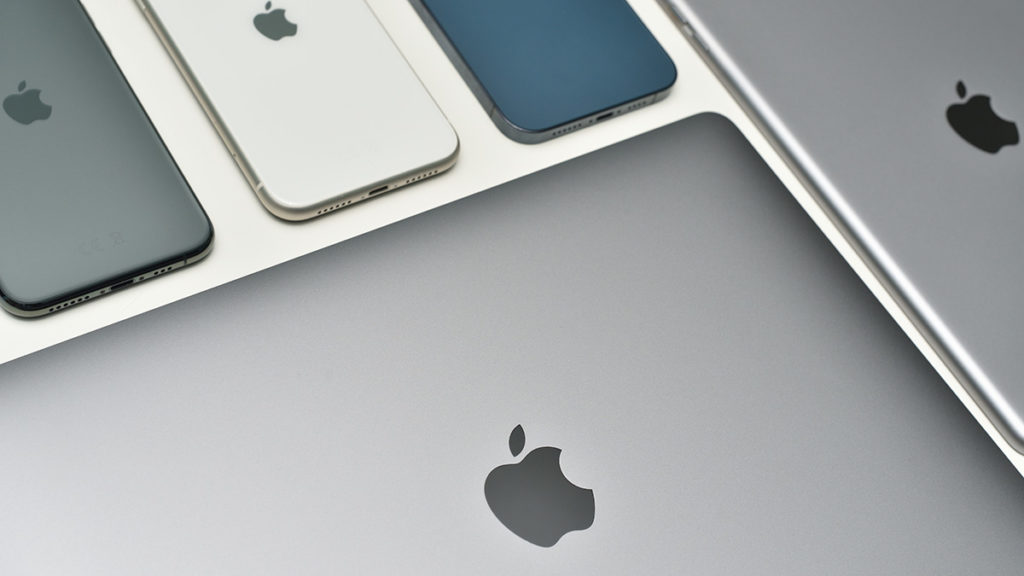
“We wanted something fun, spirited, and not intimidating — and something that would get us ahead of Atari in the phone book," Jobs recalled later on. Apple was born. And it's since gone on to become one of the biggest and most successful companies of all time. As American as apple pie.
The kitchen is an apple-lover's dream
Apples are the quintessential and ideal fruit to eat fresh and on the go.
“Apples are a fantastic fruit choice," says Dr. Christopher Mohr, Ph.D., a registered dietitian, sports nutritionist, author, and consultant. “They're portable, convenient, easy for travel, and loaded with nutrition."
According to Mohr, whole apples — skin included — are “a great source of the shortfall nutrient fiber, offering about four grams per apple. They're also low in calories, packed with water — which makes them filling if you're counting calories or trying to lose weight."
If you're not eating them fresh, you can prepare them in an almost endless number of ways: pies, crisps, dumplings, applesauce, apple butter, muffins, cakes, donuts, caramel apples, baked apples, stuffing, chutneys — the list goes on and on.
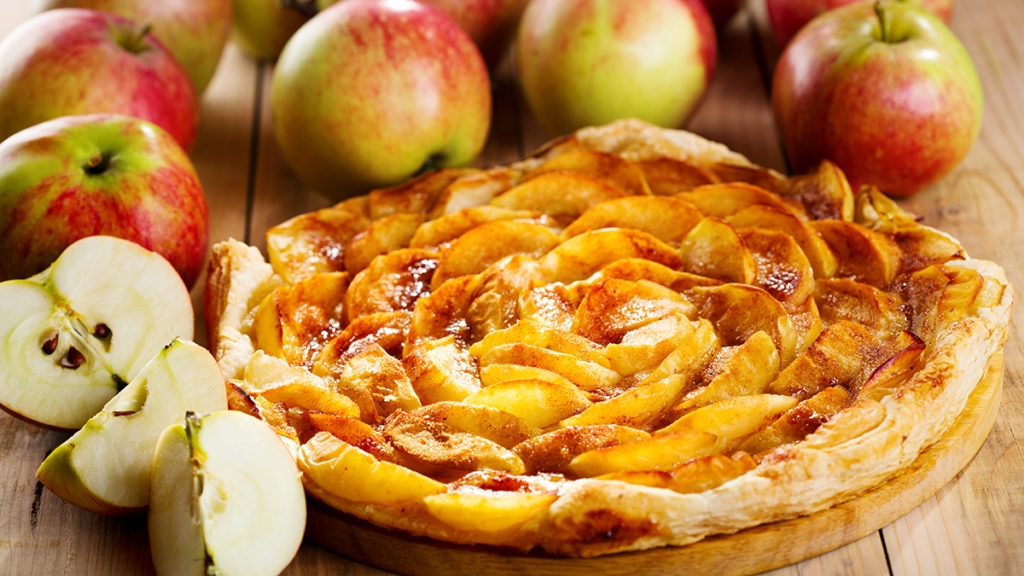
They can also take a leading role in savory dishes, paired with pork, mixed into a ginger or carrot soup, snuck into salads, in a cheesy casserole, or as the secret ingredient in a beef stew.
Apples even have a place in a variety of drinks, from ciders to smoothies to cocktails…even sangria. Apple juice was once even one of the earliest prescribed antidepressants!
And when they're not starring in a meal or snack, they can inspire one. Cheryl's buttercream frosted apple cut-out cookies transport the classic look and shape of fresh apples into a one-of-a-kind, melt-in-your-mouth flavor extravaganza.
Based on the ongoing popularity of apples in America and around the world, and how integral a part of the human experience they are, it's safe to say apples aren't going away any time soon.







